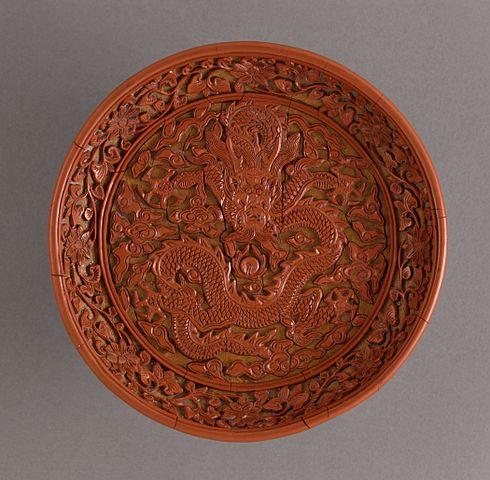
Thammasat University students are cordially invited to participate in a free Zoom lecture about Translation Matters: Problems of Inference in Assessments of China’s Intentions.
The event will be held on Friday, 28 January starting at 8pm Bangkok time.
It is organized by the Faculty of Oriental Studies, the University of Oxford, the United Kingdom.
The Thammasat University Library collection includes many books about different aspects of Chinese language and translation.
Students may register to receive a Zoom link at
https://us06web.zoom.us/webinar/register/WN_IhnC0ONxSHK1N35Q2BX_1Q
For further information or with any questions, please write to
information@chinese.ox.ac.uk
As the webpage announcing the panel discussion explains,
Translation Matters: Problems of Inference in Assessments of China’s Intentions
As the US gears up for the ‘great power competition’ with China, accurate translation of Chinese sources is increasingly important. Different translations can lead to different inferences about intentions, which in turn can affect policy analysis. In this talk Professor Johnston looks at a key inference in recent US policy documents about China’s long-term intentions, an inference that is based, in part, on a problematic translation and decontextualization of key phrases in a speech by China’s leader, Xi Jinping. This same translation has also been invoked by analysts and pundits to argue that there is no more need to debate China’s long-term intensions. A more contextualized reading of these key phrases suggests that they do not support any particular inference about long-term goals. The takeaway ‒ given the issues at stake in the ‘great power competition’, analysts should think about setting up a translation review process where potentially analytically significant and policy-relevant translations are subject to double blind peer review, something akin to an academic product.
The speaker will be Professor Alastair Iain Johnston, who teaches in the Government Department at Harvard University, the United States of America.
The TU Library collection includes a number of books written and edited by Professor Johnston.
These include Cultural Realism: Strategic Culture and Grand Strategy in Chinese History (Princeton: Princeton University Press, 1995) and Social States: China in International Institutions, 1980‒2000 (Princeton: Princeton University Press, 2008), as well as articles on identity, strategic culture, and socialization theory, mostly with application to China’s international relations.

In 2017, Professor Johnston wrote a blog post that observed
Three Contradictions in Trump’s China Policy (Thus Far)
Professor Alastair Iain Johnston explains three paradoxes at the center of the new Trump administration’s approach to China and Taiwan, as part of the Fairbank Center’s new blog series on Trump and Asia.
Xi Jinping steps out from behind the PRC flag, image: Reuters
It is probably too early to tell how the details of Donald Trump’s China policy will evolve. Very few of the China-related policy positions in the new administration have been filled. A wide range of individuals with varying policy preferences claim to be his advisers or claim to interact with his transition team. So predicting his China policy is fraught with uncertainty (as, apparently, Trump prefers).
But thus far, Trump’s own statements and tweets, and comments from those who are assumed to have some inside information suggest at least three contradictions or tensions in his thinking about China.
- Does Leverage Over China Require Sacrificing Taiwan?
Trump and some of his advisers have suggested that improved relations with Taiwan (including reconsidering the U.S. “One China” policy) could be used as leverage to get China to back down on everything from its military activities in the South China Sea to its trade policies.
However, China will have no incentive to play nice on maritime disputes or trade if Trump can’t also reassure Beijing that he would dial back relations with Taiwan if China does moderate its behavior. That is, if Trump goes ahead and improves relations with Taiwan regardless of what China does on the South China Sea or on trade, then Beijing has no incentive to change its behavior. Thus, the logic of coercive diplomacy requires that, in addition to threats, Trump needs to assure China that its “good behavior” will be rewarded.
But if Trump DOES try to credibly reassure China that he would indeed dial back relations with Taiwan in return for “good behavior”, then what is Trump telling the Taiwanese? It would seem that in Trump’s view, Taiwan’s future is a legitimate pawn in his transactional approach to relations with China. But if Trump does not intend to use Taiwan so strategically, then he is unlikely to generate the leverage over China that he needs and wants.
- Is Taiwan Costly to China or Not?
Some Trump advisers argue that changing or threatening to change the relationship with Taiwan will dramatically raise the costs to China for its military activities in the South China Sea. This is the same thing as saying that because China is so sensitive about the Taiwan issue it will be willing change its South China Sea policies because it places a higher value on its vision of the status quo with Taiwan.
But other Trump advisers argue that the U.S. can raise the level of official interaction with Taiwan because ultimately China will adjust. Indeed, they suggest that nothing dramatic will actually change in U.S.-Taiwan relations other than improved communications. Moreover, they note, there are lots of precedents for changing protocols and procedures in relations with Taiwan anyway. China will get used to it. This is the same as saying that China doesn’t value its vision of the status quo with Taiwan very much because it is will ultimately accept changes in the US-Taiwan relationship.
So, which is it? Do the Chinese so value their vision of the current status quo on the Taiwan issue that any improvement in the U.S.-Taiwan relationship gives the U.S. leverage over China on important issues like the South China Sea? Or do the Chinese essentially discount the value of the status quo on Taiwan such that they won’t react much if the US changes it?
- Is Extolling Unpredictability Self-Defeating?
Some Trump advisers have suggested that Trump’s successively provocative and/or inconsistent statements on China reflect a shrewd strategy of unpredictability. If you keep the adversary from knowing your intentions and bottom lines, then this uncertainty will induce caution in the other side and cause the other side to reveal its strategy first.
This is actually an argument that the Chinese military makes against transparency and in favor of deceiving the enemy. Deception and unpredictability, in this view, enhance deterrence, and have operational advantages when deterrence fails. Trump appears to share this view. He has pointed out he likes being unpredictable in negotiations. Indeed, some observers have suggested he is influenced by the Nixonian “madman theory” of bargaining — appearing crazy and unpredictable will lead the opponent to make concessions now rather than wait for some more dangerous future.
Deception and unpredictability may work in zero-sum conflicts such as warfare. But they don’t work so well when negotiating in relationships that also have major cooperative elements (e.g. U.S.-China cooperation on trade, investment, climate change, counter-terrorism, and counter-proliferation). If you are unpredictable, potential partners will likely see you as unreliable; they will conclude that you won’t keep your agreements and promises. Once you have a reputation for unreliability, why would anyone want to cooperate with you in the future?
In short, deliberate unpredictability as a strategy is inconsistent with maintaining productive relationships in business and in diplomacy. It is also antithetical to crisis management where the credible communication of restraint is essential for de-escalation.
Finally, if you truly believe in the efficacy of the madman theory, you shouldn’t advertise that you believe in the madman theory. If you do, you reveal you are not a madman, and the strategy then loses its effectiveness.

(All images courtesy of Wikimedia Commons)
